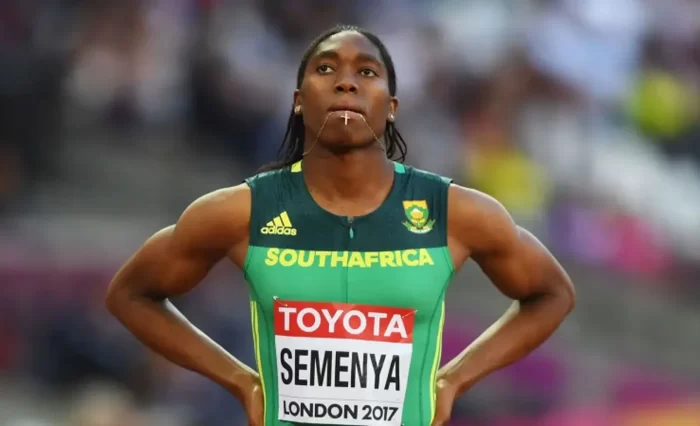Breaking News
South African Olympic champion Semenya asks for funds for legal fight
Last year, World Athletics amended its rules and DSD athletes like Semenya now have to reduce their amount of blood testosterone to below 2.5 nanomoles per litre, down from the previous level of five, and remain below this threshold for two years.

Double Olympic champion Caster Semenya on Friday appealed for funds for her legal battle against regulations requiring female athletes with high testosterone to take medication as she prepares for a May hearing at the European Court of Human Rights (ECHR).
The 33-year-old South African athlete won a long legal battle last July against Switzerland at the ECHR, which ruled she was the victim of discrimination from the Lausanne-based Court of Arbitration for Sport.
But Swiss authorities, supported by World Athletics, have taken the matter to the ECHR’s Grand Chamber, whose rulings are binding, with hearings slated to start on May 15.
“We lack funds. We have a lot of experts that come in that we need to pay,” Caster told a press conference in Johannesburg.
“Anything that you may contribute, it makes a huge difference.”
Semenya, who is classed as having “differences in sexual development (DSD)” but has always been legally identified as female, has refused to take drugs to reduce her testosterone levels since track and field’s governing body World Athletics introduced the original rules in 2018.
As a result, the Olympic 800m champion in 2012 and 2016 and world gold medallist in 2009, 2011 and 2017, has been barred from competing at her favoured two-lap distance and was forced to make an unsuccessful move up to 5,000m.
The ruling by the ECHR last July was largely symbolic as it does not call into question the World Athletics ruling and does not pave the way for Semenya to return to competition without taking the medication.
In her book, “The Race To Be Myself”, Semenya confesses her career at the top is over.
“I don’t want to talk more about sports as I have accomplished everything I’ve ever wanted,” Semenya said on Friday.
She said she was now focused on being an advocate for young athletes facing similar challenges.
“We all know what this case is all about, it is about the differences in women’s body. And the main goal is to make sure that we protect… these young kids so they can be able to compete.”
Semenya’s South African lawyers, who work pro-bono, said that only for the upcoming ECHR’s Grand Chamber hearings costs are expected to reach about $180,000.
Overall, their client’s decade-long legal battle has cost in the region of 30 million rand ($1.5 million) with fees for experts and lawyers authorised to present the case before courts in Switzerland and elsewhere among the main expenses, said lawyer Gregory Nott.
“It’s absolutely incredible. It’s ludicrous. So that’s why we’ve turned to the public,” he said.
World Athletics introduced the DSD regulations to create a level playing field in women’s events.
Semenya failed to reach the 5,000m final at the 2022 world championships in Eugene.
Last year, World Athletics amended its rules and DSD athletes like Semenya now have to reduce their amount of blood testosterone to below 2.5 nanomoles per litre, down from the previous level of five, and remain below this threshold for two years.
World Athletics also removed the principle of restricted events for DSD athletes, meaning that they are barred from all distances unless they meet the testosterone criteria.










